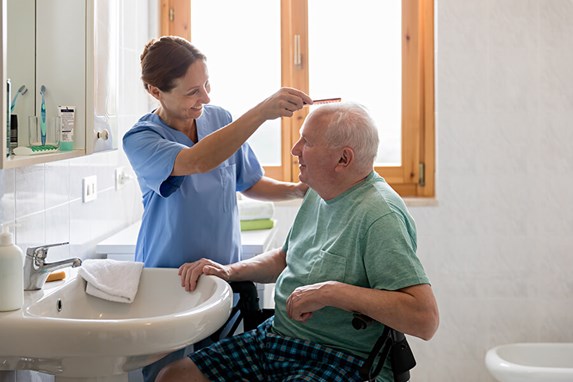Whether you live close to your parents or are keeping tabs on them from afar, it may be difficult to recognize when they are in need of support at home. Facing the reality that your parents are aging and vulnerable can be hard and you may find yourself in a state of denial for a period of time. You might also question whether or not your parents really need extra help. However, it is extremely important to understand that your aging parents are at risk of illness, serious injury and abuse without the proper care. Also, understanding that there are options of support for your parents that will allow them to continue living in their own homes and maintain a sense of independence and freedom. In-home caregivers are the perfect option for aging parents that are still capable of taking care of themselves to a degree but require some assistance with daily living tasks.
“Driving problems are always a big concern for children of aging parents.”
No matter how close in distance you are to your parents, there are signs to watch for that can indicate whether or not it is time to get assistance.
1. Self-Neglect – The National Institute on Aging suggests arranging extended visits with your parents and “looking for safety issues and at the overall condition of the home, and trying to determine the older person’s mood and general health status.”
Short visits may not provide the information that you need to determine if self-neglect is an issue. Watch for:
• Poor Hygiene
• Confusion/Depression
• Problems Taking Medications
• Lack Of Medical Care
• Hoarding/Unkempt House
2. Signs of Physical Harm – If your parent has been having more accidents around the home, or if you notice bruises, burns, and wounds on the body, this could indicate that your parent is having trouble walking and getting around.
3. Behavioral Changes – Behavioral changes can signal bigger concerns. Increased agitation, confusion and extreme mood swings could be an early sign of Alzheimer’s or dementia. They may also be a warning of depression, anxiety and loneliness.
4. Financial Troubles – Unpaid bills, bounced checks and collections notices can be a red flag that your parents need some support at home. When it comes to financial matters, it is wise to sit your parents down and have a conversation with them. Let them know that you want to make sure that nobody is taking advantage of them financially and that you want to help.
5. Unsafe Driving – Driving problems are always a big concern for children of aging parents. The safety of your family is your ultimate concern and you want to make sure that you are taking necessary steps to protect them. When driving becomes a concern, there are in-home support options that can help your parents maintain their independence while also receiving the help that they need to keep it safe.
These are just some signs that your parents may require in-home support to stay safe and healthy. If you are worried about your parents, your next step is to have a conversation with them about your concerns and identify the challenges that they are experiencing. Remember to let them know that you don’t want to take away their freedom and that you just want to make sure that they are safe and happy. Take the initiative because many adults do not want to be a burden and may not ask for help themselves.


